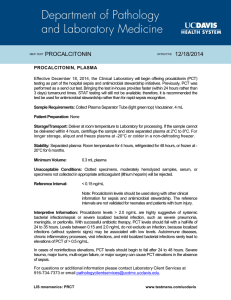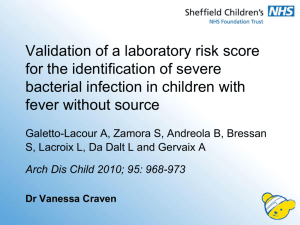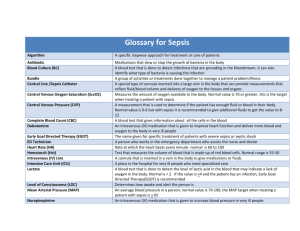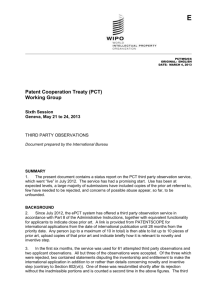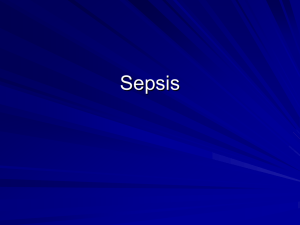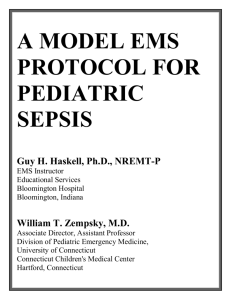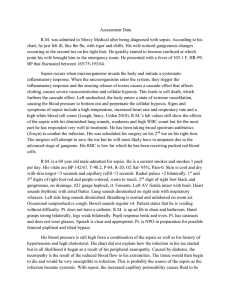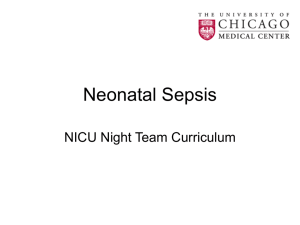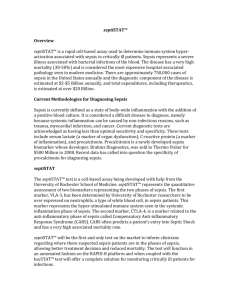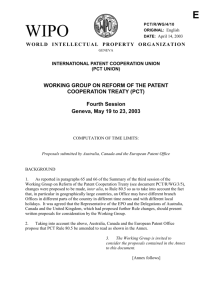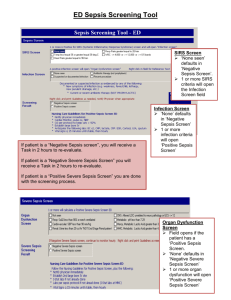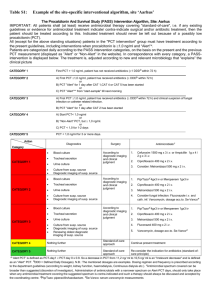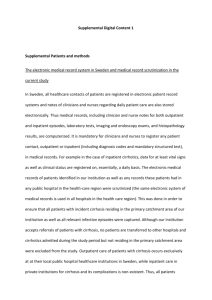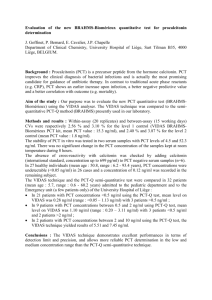Procalcitonin in systemic infection and sepsis: clinical utility and
advertisement
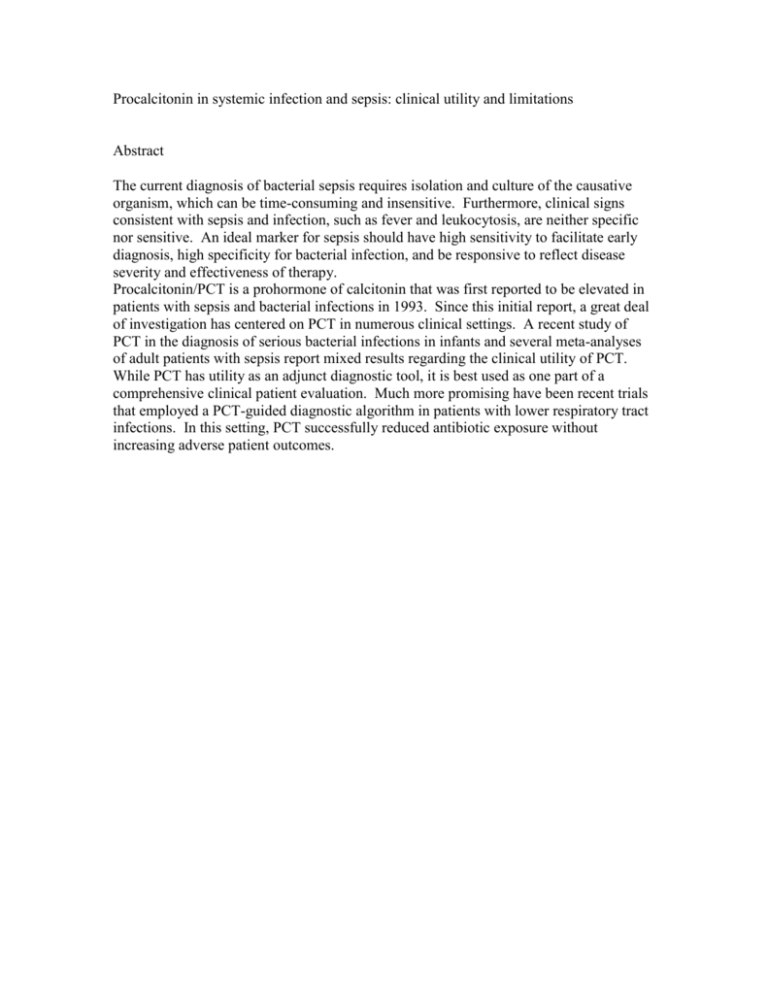
Procalcitonin in systemic infection and sepsis: clinical utility and limitations Abstract The current diagnosis of bacterial sepsis requires isolation and culture of the causative organism, which can be time-consuming and insensitive. Furthermore, clinical signs consistent with sepsis and infection, such as fever and leukocytosis, are neither specific nor sensitive. An ideal marker for sepsis should have high sensitivity to facilitate early diagnosis, high specificity for bacterial infection, and be responsive to reflect disease severity and effectiveness of therapy. Procalcitonin/PCT is a prohormone of calcitonin that was first reported to be elevated in patients with sepsis and bacterial infections in 1993. Since this initial report, a great deal of investigation has centered on PCT in numerous clinical settings. A recent study of PCT in the diagnosis of serious bacterial infections in infants and several meta-analyses of adult patients with sepsis report mixed results regarding the clinical utility of PCT. While PCT has utility as an adjunct diagnostic tool, it is best used as one part of a comprehensive clinical patient evaluation. Much more promising have been recent trials that employed a PCT-guided diagnostic algorithm in patients with lower respiratory tract infections. In this setting, PCT successfully reduced antibiotic exposure without increasing adverse patient outcomes.
